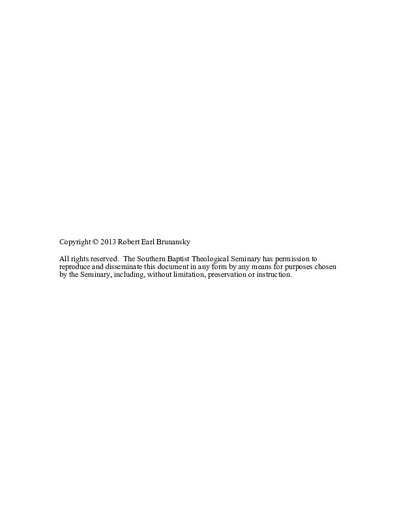Counterfeit Money or Genuine Gift? Gift, Giving, and Salvation in the Gospel of John
Abstract
This dissertation studies the concept of gift in the Gospel of John, especially as it relates to God's gift of salvation to humanity. Chapter 1 defines the problem of the gift both for New Testament studies as well as philosophy and sociology. In light of the discussion of the gift historically and in contemporary scholarship, and in view of the biblical text of the Gospel of John, chapter 1 presents the thesis that the Fourth Gospel describes salvation as a gift rather than an economic exchange.
Chapter 2 argues that the Fourth Gospel presents God as a unilateral giver. The foundation for this argument is the Prologue of John's Gospel, which sets forth creation, light, life, and grace as unilateral gifts of God. When the Gospel of John discusses these gifts, it insists that when God gives them, He receives nothing in return from the recipients.
Chapter 3 narrows the focus to God's gift of salvation. It begins by defining salvation in Johannine terms. When John's terminology for salvation is examined, it becomes clear that salvation means nothing less than deliverance from the condemnation that results from sin unto eternal life. Salvation is tied to God's gift of His Son. Indeed, salvation is given in the gift of the Son. The gift of the Son, however, is a transcendent gift wherein God gives to humanity exhaustively.
Chapter 4 discusses the role of the recipients in the giving and receiving when the giver is God, who gives unilaterally and transcendently. The role of human donees must be viewed within a Johannine concept of Trinitarian giving. The triune nature of divine giving and God's gift of the Spirit to His people present an aneconomic model of giving.
Chapter 5 summarizes the main arguments of the dissertation, focusing on the epistemological presuppositions requisite to understand the gift and offering a definition of gift. It also notes remaining challenges that need to be addressed in future studies on the gift in the context of Christian theology.

